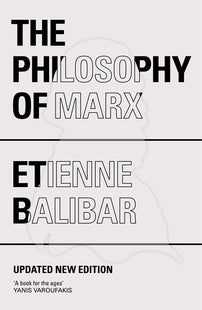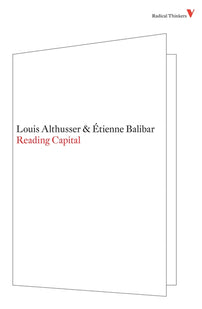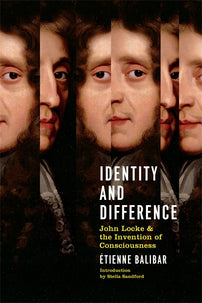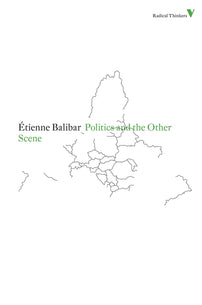‘Communism is an active and diverse collective subjectivity’: An Interview with Etienne Balibar
In conversation with Jérôme Skalski, the Marxist philosopher explores the connections between History, Communism and Socialism.
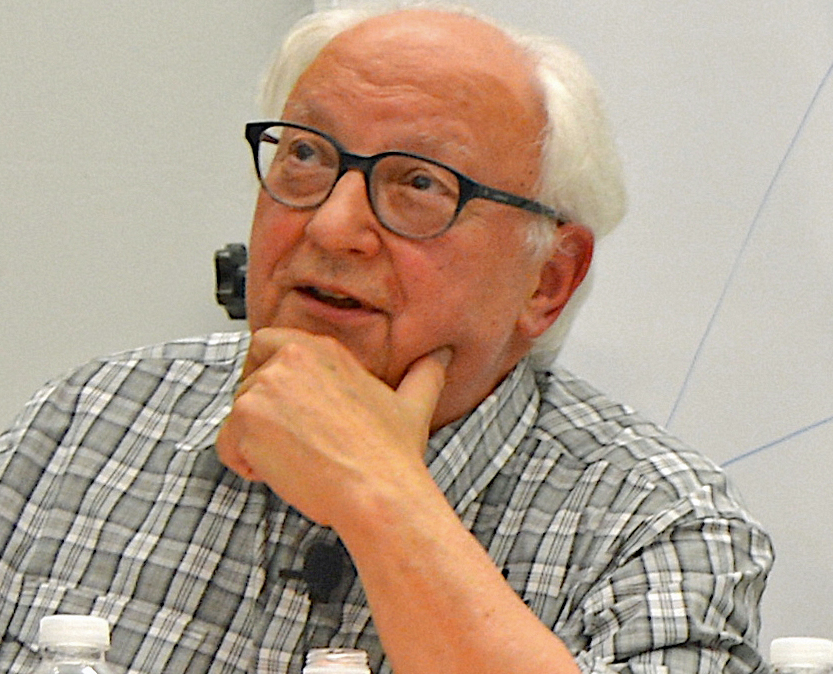
The first two volumes of your Écrits* combine concept and history, notions that are often opposed. What drives this dual interest in your thinking?
Over the course of my life, I have worked, on the one hand, on questions whose focus was the work of the concept, in particular epistemological and anthropological questions, and then, on the other hand, as a citizen and an activist, I have felt the need to confront the history of which we are a part. One might say that history is the field in which everything changes. In which the most secure positions are, at one time or another, inevitably called into question. I discuss a number of these in my book under the name of ‘traces’. On the other hand, one might have the feeling that the work of the concept aims at a kind of permanence that is the very opposite of the flight of time. It’s true that these are two styles of work, but I would say – and I hope that these two books show this – that there is a third fundamental term involved in both reflection on history and the work of the concept, which is politics in the broadest sense of the term. So, on the one hand, I have tried to work and reflect on examples, past or present, and even future examples, in the sense of conjecture, on how the intrinsic relationship between politics, history or praxis and temporality is established, and then, on the other hand, I have tried, particularly following the late attempts of Althusser and Foucault, to produce and explore a conception of theoretical thought in which conflict, and so inevitably politics, would constitute not a contingent exteriority, or even a danger to be guarded against, but on the contrary a kind of wellspring or intrinsic power.
A point that you keep coming across in Marx?
Yes, I can claim different sources of inspiration – including some that are not self-evident, like Weber or Schmitt – but the greatest of all for me is always Marx. There is something about him that is admirable and that I have already stressed in my little book The Philosophy of Marx. I see Marx as someone who basically never conceded on two fundamental requirements, even when they were in conflict with each other. One of these was to transform the world. This is the idea that we live in a society that is not only contradictory but unbearable, and that it is absolutely necessary to find the levers, the forces and tendencies which we can base ourselves on so as to give birth to its own future and alternative. On the other hand, there is in Marx a thirst for truth that rejects compromise with the facilities or contingencies of political struggle. He did not concede on either of these demands, which also means that he took the risk of being mistaken. Truth can only be discovered through error. As Spinoza said, ‘it is necessary to understand’, especially to understand what one has done and what happens to what one has done. Maximum enthusiasm, therefore, and maximum conceptuality.
Pessimism of the intelligence, optimism of the will. Isn’t that also, in a way, the Gramscian formula?
It is exactly Gramsci’s formula! It is one of the clearest expressions of this tension, which is certainly not easy, but which is also a sine qua non of political action. There are other possible formulations. For example, that contained in the Weberian opposition between the ethics of conviction and the ethics of responsibility, provided that this is read not as an exclusion but as a reciprocity of perspectives. Max Weber is not seen as a great revolutionary, but from my point of view he is a teacher at least as important as Gramsci or Marx, at least in terms of method. There is also Machiavelli’s formula: ‘Andar drieto alla verità effetuale della cosa’ [‘Pursue the effective truth of the thing’], which appears in a letter from Machiavelli to François Guichardin and which I quote at the start of Passions du Concept. ‘Andar drieto’, in the Tuscan language of the time, did not mean ‘go straight ahead’, rather ‘go behind’, that is to say, ‘follow’ or ‘pursue’ the truth.
Your reflection on the history of what was called ‘actually existing socialism’ leads you, in the wake of Spinoza, to a critical reflection that particularly rehabilitates the idea of democracy. Why?
There are a number of decisive turning points in the history of ‘actually existing socialism’. Naturally, Stalin is the inescapable point of reference. The question that arises is what happened when Stalin, and everything he represented, took power in the Soviet Union some time after Lenin’s death. I described this in my text on the trace of the October Revolution as the return of the principle of state sovereignty in the history of the communist revolution. But something happened earlier than that, which I completely changed my mind about in the course of my life. It was the moment in 1918, at the height of the civil war, when Lenin decided that the Constituent Assembly elections were null and void and that parliamentary democracy was an obstacle to revolutionary transformation or a hotbed of counter-revolutionary resistance. The idea was that representative institutions of this type had to be abolished in order to put in place, it was claimed, a more radical democracy in the form of soviet or council democracy – though in fact, this would actually mean the omnipotence of the single party, however necessary this was believed to be. At that time, Rosa Luxemburg, in a premonitory way, wrote a text that she herself was unable to publish because of her arrest and assassination, and in which she wrote the famous sentence: ‘Freedom is always the freedom to think differently.’ This means that the abolition of ideological pluralism contains within itself, in a way, the death sentence of the revolutionary attempt. In the communist tradition to which I belonged, this question was considered settled: Lenin was right. It was an argument that made the worst possible use of Machiavelli in the name of immediate efficiency, failing to grasp ‘the effective truth of the thing’. I think Rosa Luxemburg understood something that was quite decisive, with catastrophic consequences for the future of Soviet-style socialism.
The consequence is not that I see parliamentary democracy as the nec plus ultra or the alpha and omega of the democratic idea. The attempts I have made, along with others, to give some content to the idea of a radical democracy, in my collection on Equaliberty, for example, lead me to think that there are democratic forms more advanced than representation or parliamentarism. It is also likely that their mutual relationship should be seen in a dynamic, and therefore inevitably conflictual, way, as a kind of complementarity or alternance, rather than as the pure and simple abolition of one form for the benefit of the other. This seems to me to be indicated by the many insurrectional movements calling for participatory democracy that are emerging at the moment throughout the world, and are translating the vitality of the ideals of emancipation by adding new content to these.
Some Marxist thinkers such as Lucien Sève insist on separating socialism and communism with a view to critically overcoming the historical impasses of this ‘actually existing socialism’. What do you think of this?
I am very happy that discussions on communism are more lively and more alive than ever. I try to take part in these. The basis of my position is not that we have to choose. Some of our contemporaries – including Lucien Sève, who is the representative of a great tradition, with many elements that we have share – have drawn from all this history the lesson that we must bury the category of socialism. They propose to go back to a kind of original purity of the idea of communism and, at the same time, they try to show that the idea of communism in this form of a radical alternative to the world of private property and the state (what some call the ‘common’, to avoid embarrassing historical connotations) is somehow required by the contradictions of the absolute capitalism in which we live today.
This is not very different, verbally at least, from what Toni Negri says on his side or from what Althusser explained in some of the last texts of his life, a convergence that I find impressive. I agree with the idea that we need to think in terms of radical alternatives, but I also tend to think that we still need both categories of communism and socialism. On condition, of course, that we break completely with the evolutionary perspective in which classical Marxism had inscribed these: first, the seizure of political power; second, economic and social transition... It is this ‘stage-ist’ and at the same time statist schema that has been completely invalidated by history.
What is not invalidated is the idea of long-term transition or confrontation between social, political and cultural forces that embody radically alternative world-views. And the reality of the environmental catastrophe we have now entered, with no possible return back, highlights all the more the importance and urgency of forging and implementing, inventing systems of government and programmes for social transition that inevitably confront us with the fact that, over a very long period of time, we will be dealing with conflicts between antagonistic forces, with phases of compromise, more or less solid alliances and increasingly profound reforms.
In the last text of my collection, hypothetically entitled ‘For a Socialism of the 21st Century: Regulations, Insurgencies, Utopias’, what I try to do is to clarify the idea of a socialist transformation whose content would be completely rethought on the basis of the lessons of history and the immediate emergency. One might therefore think that, under these conditions, I am saying goodbye not to socialism, like Toni Negri, but to communism. But I believe that the reality is quite the opposite. I am convinced, in fact, that there will be no socialist transition or programme of any kind, particularly ecological socialism, which is the only conceivable one today, if there are not communists, under many different names moreover, who provide this transition and this struggle with the energy, the capacity for invention, imagination and utopia, but also the revolutionary radicalism that it needs. Communism is not a form of property or a mode of production, it is an active and diverse collective subjectivity.
The alternative to the old patterns is not to say: let’s forget socialism and try to achieve communism right away in today’s world. Nor is it the alternative of saying: let’s put off communism to a distant, even inaccessible ideal. It is that which consists in saying: more than ever we need masses of communists, intellectuals and others, if we want something like an alternative to capitalism to find its reality in the world we live in. That is why I quote the formula of another ‘deviationist’ in our tradition, Eduard Bernstein, that ‘the final goal is nothing, the movement is everything’ – a formula that actually comes from Marx.
This interview first appeared in L’Humanité, 21 February 2020
[book-strip index="1" style="display"]* Histoire interminable. D’un siècle l’autre. Écrits I, and Passions du concept. Épistémologie, théologie et politique. Écrits II (La Découverte, 2020).

